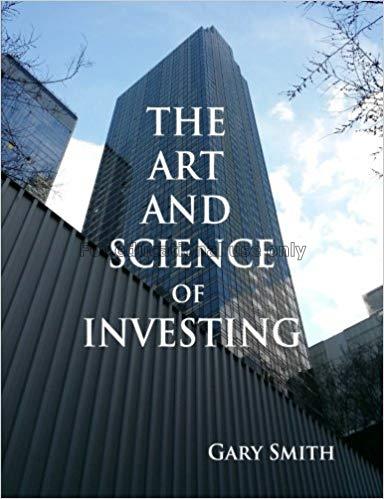The art and science of investing / Gary N Smith
Author : Smith, Gary N

Financial markets continually evolve, but underneath these innovations are fundamental principles—such as present value, leverage, hedging, efficient markets, and the conservation of value. These enduring principles are more important than transitory details. Investing is not a multiple-choice test that can be passed by memorizing soon-obsolete facts like the name of the largest brokerage firm or the number of stocks traded on the New York Stock Exchange. The great British economist John Maynard Keynes wrote that the master-economist must possess a rare combination of gifts. He must be mathematician, historian, statesman, philosopher—in some degree. He must understand symbols and speak in words. He must contemplate the particular in terms of the general, and touch abstract and concrete in the same flight of thought. He must study the present in the light of the past for the purposes of the future. No part of man’s nature or his institutions must lie entirely outside his regard. The same could be said of the master investor. Our understanding of financial markets and investments depends on mathematical analysis. How could we predict investment income without models? How could we calculate present values without equations? How could we gauge uncertainty without statistics? However, a deep understanding of investments depends on our recognition of the limitations of models, no matter how scientific they appear, no matter if they were developed by Nobel laureates. The Art and Science of Investing explains the financial models that are most useful for investors, and also explains how their usefulness depends critically on a recognition of their limitations—why there is both a science and an art to successful investing
| Barcode | Call No. | Volume | Status | Due Date | Total Queue | |
|---|---|---|---|---|---|---|
| 1040003391 | IK00073 | Available | 0 | Please Login |
Related Book